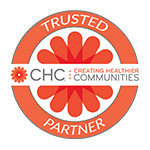How have your conversations about abortion gone? Did your family dinner get heated, or your classroom discussion wind up in name-calling and anger?
You’ve witnessed the conversations and being pro-life or pro-choice devolve into stereotypes, caricatures, and political talking points.
This has made finding understanding or common ground more challenging than ever.
What does it really mean to be pro-life?
In the technical sense, both sides of this argument are about something very similar – protecting rights. One side wants to protect the unborn child’s right to live, while the other wants to protect body autonomy. Unfortunately, there are misconceptions and assumptions about what these terms mean.
The phrases “pro-life” and “pro-choice” hold significant implications in today’s culture in regard to politics, religion, and ethics. This resource will guide you through the history and arguments commonly conveyed by the opposing sides. It will help you navigate controversial conversations and act with conviction, compassion, and knowledge.
3 Compelling Reasons To Protect Pre-Born Life
The reasons for identifying as pro-life are complex. They are often based on an individual’s lens in which they view the world. The more common reasons often fall into the following categories: moral, religious and scientific.
Moral Reasons
The right to life is protected by the laws of the land. Yet, often the laws don’t recognize the pre-born as human beings in need of protection. The pro-life movement affirms that human life begins at conception, and therefore equally deserving of protection and rights.
Scientific Reasons
The medical facts pertaining to pregnancy and fetal development present logical reasons why people are pro-life.
- Conception occurs when the sperm unites with an egg, also called fertilization. At this point two separate sets of chromosomes (one from the sperm and one from the egg) create one unique strand of DNA.
- 5-6 weeks after fertilization a baby begins developing arms and legs. Facial features start to emerge. A fetal heartbeat can be detected by an ultrasound.
- By the 8th week of development, all the major organs are present. All aspects of upper and lower limbs are distinct. The connections for breathing are beginning to extend from the throat to the lungs.
- During weeks 9-14, a baby’s automatic reflexes can be detected. Such reflexes include kicking, turning, and thumb sucking. Fetal viability starts at 24 weeks.
Religious Reasons
The pro-life position can be shaped by an individual’s religious or spiritual views. Christians, who believe in the Bible as God’s truth, hold the perspective that all human life is created in the image of God himself and should be treated with dignity.
Psalm 51:5-6 and Psalm 139: 13-16 point to God’s intricate design for those in the womb.
Why Do We Use The Word “Pro-Life”?
The phrase “pro-life” comes from a 1970’s political movement. The movement primarily focused on abortion, with the stance that pre-born lives were valuable and needed to be protected. However, the term has since developed a broader perspective valuing human life at every stage from conception to natural death. Those who affirm life take the position that all human lives have inherent value and should be treated with dignity.
The pro-life community is incredibly diverse, transcending all walks of life, but unified in their purpose.
Where Does The Phrase “Pro-Choice” Come From?
The phrase “pro-choice” generally refers to those who believe in the ability to choose abortion as an option for an unplanned pregnancy – even if they wouldn’t personally have an abortion. This movement advocates that being unable to terminate a pregnancy is a violation of bodily autonomy and reproductive rights.
Why Are People Pro-Choice?
The pro-choice movement is concerned with the right for women to decide when and whether to have children. In contrast to pro-life, those with a pro-choice stance believe that life begins at birth or during various stages of pregnancy. Often the mother’s right to choose supersedes the life of the unborn.
Common Misconceptions
“Pro-Life Only Cares About The Baby”
The pro-life movement values the life of all humans at every stage, from conception to natural death. Being pro-life also means being concerned for the wellbeing of women, men and teens facing crisis. Many pro-life organizations provide healthcare and housing services, financial support, community, and social services to pregnant women and families who may be in difficult situations. Pro-life organizations often offer guidance, options, and support to women who are making life-alternating decisions.
“Being Pro-Choice Is Pro-Woman”
1 in 4 women will have an abortion experience in their lives. It is a decision many women struggle with making. The circumstances surrounding the demand for abortion are complex. Women may be experiencing financial constraints, relationship difficulties or pressure from loved ones. The choice can be incredibly difficult and painful. Women who choose abortion can have lingering physical and emotional complications, even years later. Compassionate care and post-abortion resources through pro-life organizations, like Alternatives, are vital to promoting holistic support to women in crisis.
“Abortion Is Only A Women’s Issue”
A recent study by LifeWay Research, found 19% of men said they didn’t feel like they could be involved in the decision. Additionally, 63% believe it was the woman’s choice. Men who are experiencing unexpected pregnancy with their partner need a safe place to process their emotions too. Like women, men can experience psychological and emotional complications following an abortion decision.
The topic of abortion can be difficult, especially if two people disagree. It is important to do research and listen with compassion. The goal should be to offer truth and hope to the millions of people whose lives are impacted by abortion.

Alternatives Pregnancy Center cares for women and men in pregnancy-related crisis and offers them a meaningful alternative to abortion. Alternatives offers no-cost services to anyone experiencing an unexpected pregnancy or complications from a past abortion decision.
Without the generosity of supporters, through their time and financial contributions, Alternatives would not be able to show up in the community where it is needed most.








